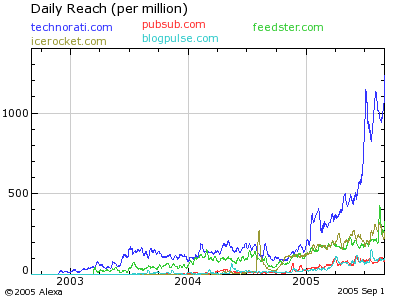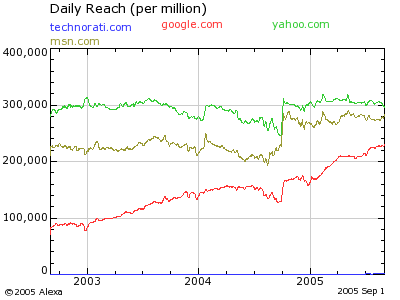The Electronic Frontient Foundation is 15 and wants “to hear about your ‘click moment’–the very first step you took to stand up for your digital rights.”
I don’t remember. It musn’t have been a figurative “click moment.” Probably not a literal “click moment” either–I doubt I used a mouse.
A frequent theme of other EFF15 posts seems to be “how I become a copyfighter” or “how I became a digital freedom activist.” I’ve done embarrassingly little (the occasional letter to a government officeholder, Sklyarov protests, the odd mailing list or blog post, running non-infringing P2P nodes, a more often lapsed than not EFF membership), but that’s the tack I’ll take here.
As a free speech absolutist I’ve always found the concept of “digital rights” superfluous. Though knowledge of computers may have helped me understand “the issues,” I needed none to oppose crypto export laws, the clipper chip, CDA, DMCA, perpetual copyright extension and the like. Still, I hold “ditigal rights,” for lack of a better term, near and dear. So how I became a copyfighter of sorts: four “click themes,” one with a “click moment.” All coalesced around 1988-1992, happily matching my college years, which otherwise were a complete waste of time.
First, earliest, and most important, I’d had an ear for “experimental” music since before college. At college I scheduled and skipped classes and missed sleep around WEFT schedule. Nothing was better than great music, and from my perspective, big record companies provided none of it. There was and is more mind-blowingly escastic music made for peanuts than I could hope to experience in many lifetimes. I didn’t have the terms just yet, but it was intuitively obvious that there was no public goods provisioning problem for art, at least not for anything I appreciated, while there was a massive oversupply of abominable anti-art.
Second, somewhere between reading libertarian tracts and studying economics, I hit upon the idea that “intellectual property” may be neither. Those are likely sources anyway–I don’t remember where I first came across the idea. I kept an eye out for confirmation and somewhere, also forgotten, I found a reference to Tom Palmer‘s Intellectual Property: A Non-Posnerian Law and Economics Approach. Finding and reading the article, which describes intellectual property as a state-granted monopoly privilege developed through rent seeking by publishers and non-monopoly means of producing intangible goods, at my university’s law library was my “click moment.”
Third, I saw great promise in the nascent free software movement, and I wanted to run UNIX on my computer. I awaited 386BSD with baited breath and remember when Torvalds announced Linux on Usenet. I prematurely predicted world domination a few times, but regardless, free software was and is the most concrete, compelling and hopeful sign that large scale non-monopoly production of non-rivalrous goods is possible and good, and that the net facilitates such production, and that freedom on the net and free software together render each other more useful, imporant, and defensible.
Fourth, last, and least important, I followed the cypherpunks list for some time, where the ideas of crypto anarchy and BlackNet were developed. In the ten years or so since the net has not turned inside out nor overturned governments and corporations, yet we are very early in its history. Cypherpunk outcomes may remain vaporware indefinitely, but nonetheless are evocative of the transformational potential of the net. I do not know what ends will occur, but I’ll gladly place my bets on, and defend, the means of freedom and decentralization rather than control and protectionism.
The EFF has done an immense amount of great work over the past 15 years. You should join, and I will update my membership. However, my very favorite thing about the EFF is indirect–I’ve seen co-founder and board member John Gilmore at both drug war and DMCA protests. If you care about digital rights or any rights at all and do not understand descruction of individuals, rights, and societies wreaked by the drug war, there’s no time like the present to learn–the first step needed in order to stand up for your rights.
Blog-a-thon tag: EFF15



